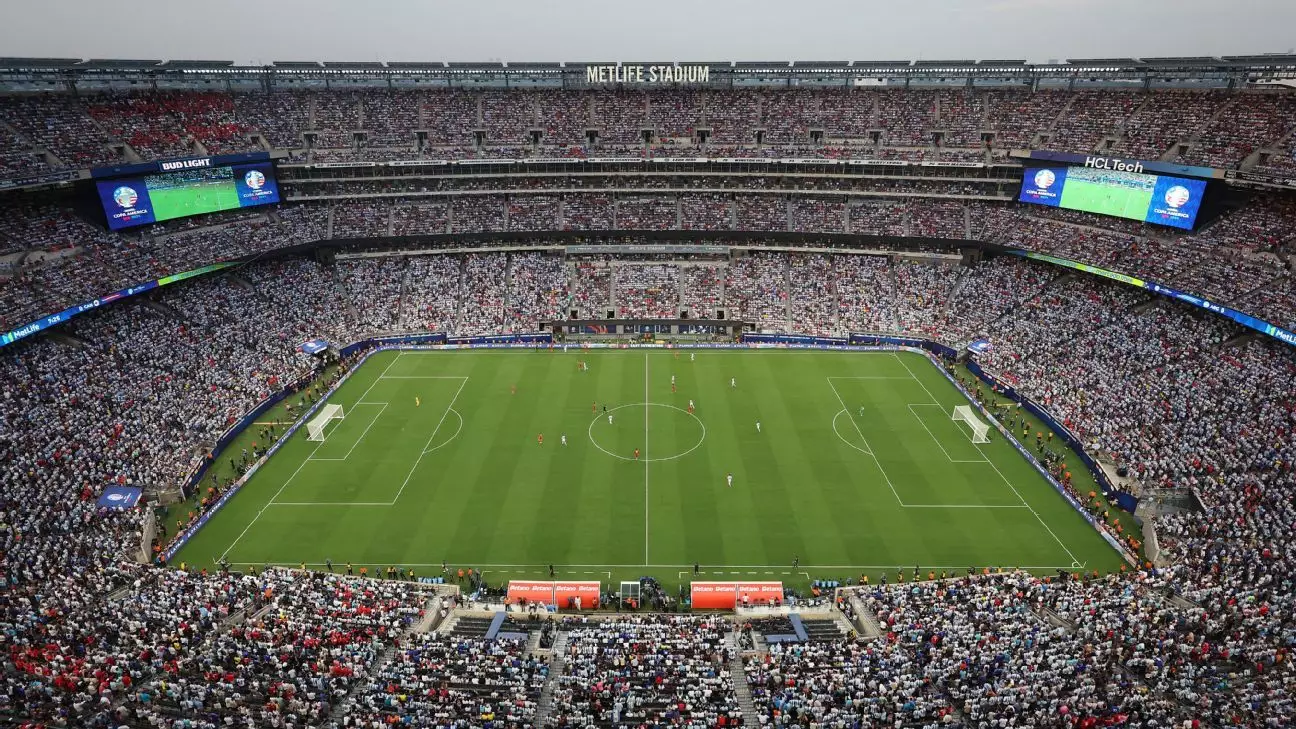The excitement surrounding the 2026 FIFA World Cup is palpable, yet FIFA has taken a proactive approach to protect its fans from potential scams. As speculation about the availability of tickets predominates online discussions, FIFA cautioned consumers against purchasing from unofficial ticketing sites. This warning underscores a crucial point—official tickets will not be sold until late 2025. Rather than relying on third-party sites that promote tickets prematurely, the governing body emphasizes directing fans to FIFA’s official channels. This strategic move aims to mitigate instances of fraud, which have plagued previous tournaments.
Despite FIFA’s clear messaging, rumors and listings for World Cup tickets are already populating popular resale platforms such as StubHub, Vivid Seats, and viagogo. This premature ticket selling reflects a persistent issue in the world of sports—people attempting to capitalize on the fervor and anticipation surrounding major events. The problem is that many fans, driven by the excitement or fear of missing out, might purchase these tickets without understanding the inherent risks. These unofficial channels do not guarantee authenticity, and there is a high likelihood of facing issues such as ticket cancellation or even the purchase of counterfeit tickets.
FIFA’s vigilance isn’t unfounded; past experiences with ticket fraud warrant this caution. The governing body previously took legal action against viagogo, a resale ticket platform that faced allegations of selling counterfeit World Cup tickets during the 2018 tournament in Russia. The comprehensive complaint against viagogo highlighted serious concerns surrounding unauthorized distribution channels and emphasized FIFA’s commitment to maintaining a fair environment for fans. The 2026 tournament, emerging from the lessons of the past, now serves as a critical juncture for FIFA to protect its integrity.
The concerns surrounding unauthorized ticket sales are not limited to the realm of sports. They reflect wider issues in the ticketing industry, which is currently under scrutiny by the U.S. Department of Justice. Following an antitrust lawsuit against Ticketmaster and Live Nation Entertainment for alleged monopolistic practices, the focus on redefining how ticket sales operate has intensified. This scrutiny serves as a stark reminder of the complexities surrounding secondary ticket markets, where legal regulations remain ambiguous and consumer protection often lacks efficiency.
Amid the flurry of excitement that typically accompanies monumental sporting events like the World Cup, it is crucial for fans to remain vigilant. This means staying informed about official ticketing processes and understanding the risks involved in purchasing through third-party platforms. By heeding FIFA’s guidance and choosing official sources, fans can protect themselves from potential scams and ensure a genuine and thrilling World Cup experience in 2026. The path to enjoying the tournament begins not just with passion for the game, but also with proactive and informed decision-making regarding tickets.

